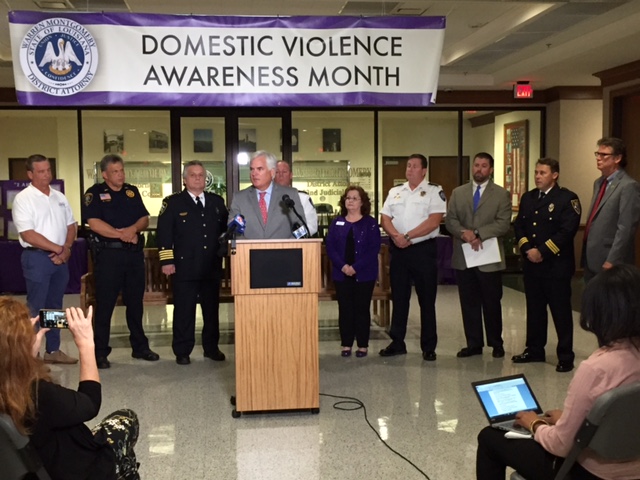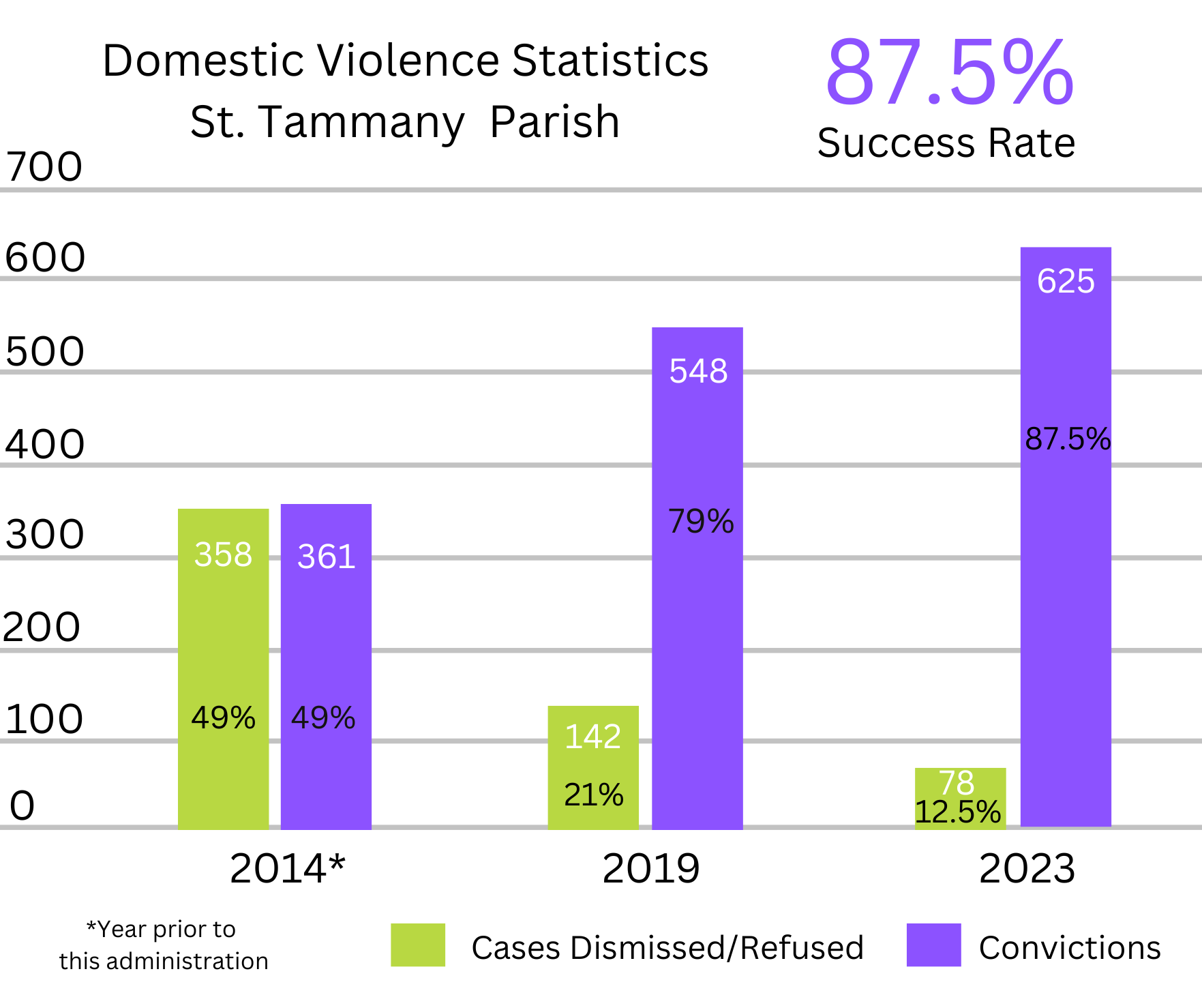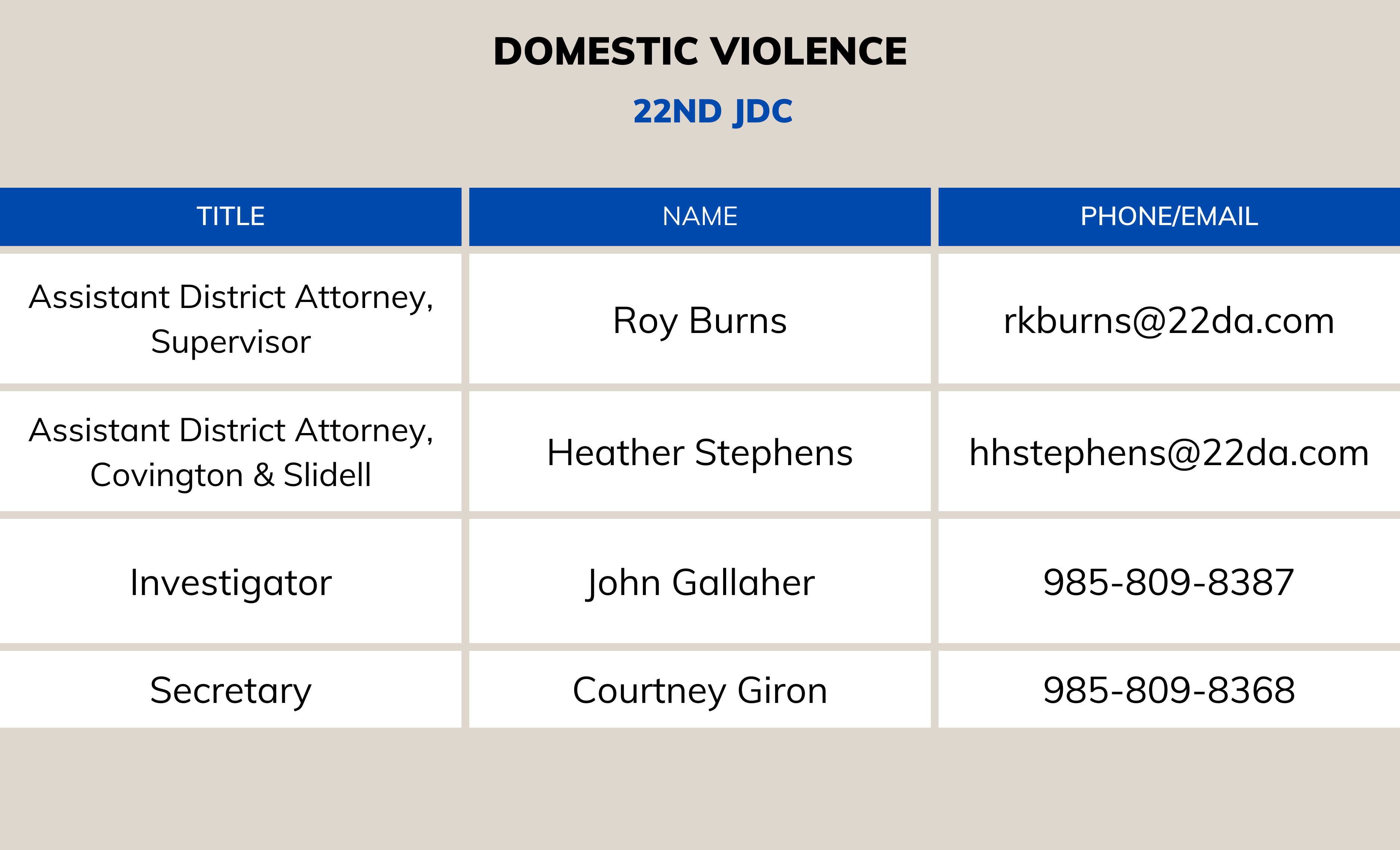Taking A Stand Against Domestic Violence Is A Priority.
We have a staff of specially-trained prosecutors and investigators
and a Victim Assistance Program to help victims through the legal process.
Domestic Violence
 If you are a victim of domestic violence call 911 immediately. Domestic violence is a pattern of abusive behaviors that a person uses against an intimate or former partner. It sometimes involves parents and children and even grandparents.
If you are a victim of domestic violence call 911 immediately. Domestic violence is a pattern of abusive behaviors that a person uses against an intimate or former partner. It sometimes involves parents and children and even grandparents.
The abuser uses fear and intimidation to gain power and control over another person. The abuse can take many forms, including emotional, economic, and sexual abuse, and it may involve using children, pets, threats, intimidation, and isolation.
Domestic violence has harmed relationships for centuries and still remains a widespread problem. It affects millions of people annually, mostly women. In the United States, 1 in 4 women will be physically assaulted by an intimate partner at some point in her life. Domestic violence affects people of all ages, ethnicities, cultures, religions, sexual orientations, educational backgrounds, and income levels.
Cases involving domestic violence can be some of the most difficult and sensitive. Victims’ lives may be seriously disrupted; often, the victims are forced to “flee” in the middle of the night, leaving behind clothing, identification papers, and other personal properties.
Taking a stand against domestic violence in this community is a top priority for our Office and our District Attorney Collin Sims. We have a staff of specially-trained prosecutors and investigators, and a Victim Assistance Program to help you through the legal process of prosecuting your attacker. Please click here for more important information about domestic violence.
Please watch this video on our 2024 UPDATES in Domestic Violence.
Our results are in for 2023 and we are proud to report that our conviction rate is at 87.5%.

Please view this playlist of 7 video interviews with our District Attorney, our DV staff of attorneys and investigators, and an interview with a victim family.
Please watch this video of a press conference discussing our new team fighting against Domestic Violence.
The D.A’s Office has signed a Memorandum of Understanding with multiple agencies outlining how they will work together to respond to domestic violence cases. This team is called the St. Tammany Domestic Violence Coordinated Community Response Team (CCRT).
The goal is to ensure that victim support and safety are prioritized throughout the legal process and that there is a just and swift outcome. Ultimately, the CCRT aims to reduce domestic violence in St. Tammany. Last year, nearly half of the homicides in unincorporated St. Tammany involved domestic violence.
FAQs
What do I do if I am a victim of Domestic Violence?
Most important is your safety and that of your family. Contact your local law enforcement agency and file a report. Law enforcement will assist in securing your safety by removing the abuser from the home. If he/she is not in custody, officers will recommend that you stay with a family member, go to shelter or obtain temporary lodging.
How do I get a restraining order?
When the officer arrives on the scene, you may request an Emergency Protective Order (EPO) which is good for 5 business days. When an individual is arrested, he will be ordered to have no contact with the victim as a condition of his release from jail.
Now that I have this order of protection, am I safe?
An order of protection cannot guarantee your safety; therefore, it is important that you have outlined a safety plan.
Can you help me relocate?
In some cases, the Victim Compensation Program may be able to provide you with financial assistance, including but not limited to relocation expenses up to $2,000 per household. The Victim Advocate will assist you in filling out the appropriate paper work and submit to claims process in an emergency basis.
What is a Restraining Order?
There are three types of protective orders: Emergency Temporary Restraining Orders: If you are in need of emergency protection outside of regular court hours, the court may grant you an emergency temporary restraining order. This order provides you and your family members with immediate protection from an abuser. If you are issued this order, it will be good only until the close of the next business day that the court is open. For the protection to remain in effect, you must go to court before the close of the next business day to request a temporary restraining order and/or a protective order.
Temporary Restraining Orders: When you go to court to file for a long-term protective order, you can also ask for a temporary restraining order (TRO). The court may issue you a TRO during an ex parte hearing without the abuser present. As soon as a TRO is issued, the abuser will be notified that you have an order against him/her. The court will give you a date (usually within 21 days) for a full court hearing where you and the abuser each have a chance to be present and tell your sides of the story.*
Long-term Protective Orders: A long-term protective order can be issued only after a court hearing where you and the abuser both have the opportunity to tell your sides of the story to a judge. You must attend that hearing. If you do not go to the hearing, your TRO may expire and you will have to start the process over. A long-term order will last for up to 18 months, unless otherwise stated.** However, the part of the order that says the abuser should not “abuse, harass, or interfere with the petitioner or his/her employment; should not go near the residence or place of employment of the petitioner, the minor children, or any person on whose behalf a the petition was filed” can last for an indefinite (unlimited) period of time.*** Orders may also be extended.
Contact
Links
womenslaw.org – A Website dedicate to family violence
National Coalition Against Domestic Violence
National Domestic Violence Hotline
http://safeharbornorthshore.org/ – “To provide crisis intervention, safety planning, emergency shelter, empowerment advocacy, and other supportive services to survivors of domestic, family, and dating violence.”

